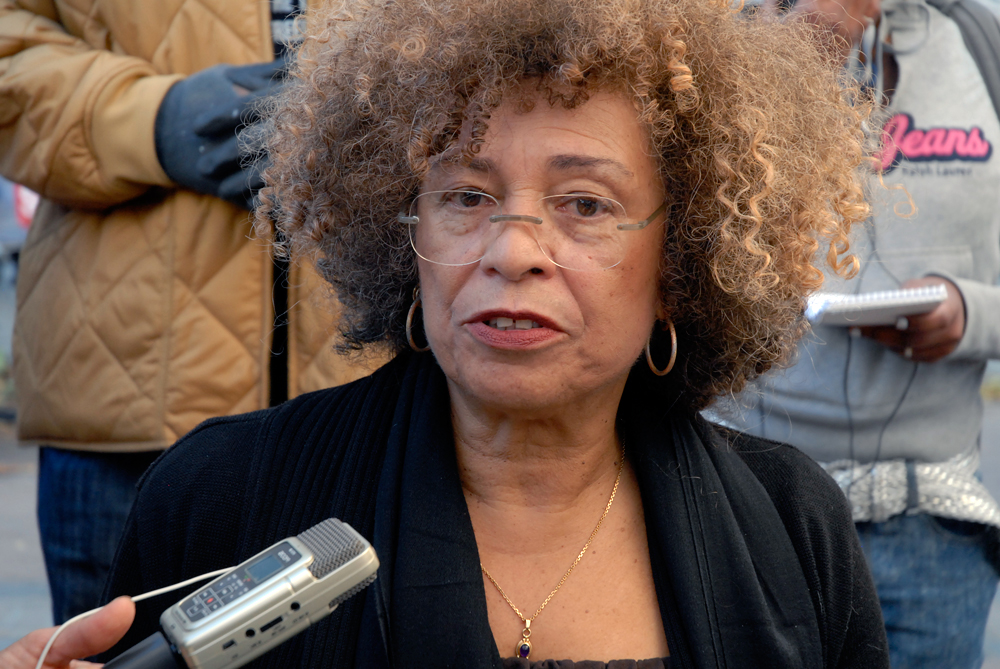
Angela Davis
She emerged as a nationally prominent counterculture activist and radical in the 1960s, as a leader of the Communist Party USA, and had close relations with the Black Panther Party through her involvement in the Civil Rights Movement despite never being an official member of the party. Davis`s long-standing commitment to prisoners' rights dates back to her involvement in the campaign to free the Soledad Brothers, which led to her own arrest and imprisonment. Today she remains an advocate of prison abolition and has developed a powerful critique of racism in the criminal justice system. She is a founding member of Critical Resistance, a national organization dedicated to the dismantling of the prison industrial complex. Internationally, she is affiliated with Sisters Inside, an abolitionist organization based in Queensland, Australia that works in solidarity with women in prison.

Angela Davis: the crowd puller
Like many educators, Professor Davis is especially concerned with the general tendency to devote more resources and attention to the prison system than to educational institutions. Having helped to popularize the notion of a “prison industrial complex,” she now urges her audiences to think seriously about the future possibility of a world without prisons and to help forge a 21st century abolitionist movement.
In 1970 she was placed on the FBI's Ten Most Wanted List on false charges, and was the subject of an intense police search that drove her underground and culminated in one of the most famous trials in recent U.S. history. During her sixteen-month incarceration, a massive international "Free Angela Davis" campaign was organized, leading to her acquittal in 1972.

Angela Davis, speaking at UCLA in 1969
In her academic life as professor, Davis faced powerful and morbid opposition from the American ruling class. Former California Governor Ronald Reagan once vowed that Angela Davis would never again teach in the University of California system. Today she is Distinguished Professor Emerita in the History of Consciousness and Feminist Studies Departments at the University of California, Santa Cruz. In 1994, she received the distinguished honor of an appointment to the University of California Presidential Chair in African American and Feminist Studies.
Angela Davis
Angela Davis may be seen as a trouble-maker by some Americans because of her political modus operandi in dealing with issues but she is a peace-loving “social justice” advocate. In an interview with NPR, Pinkett Smith said that Davis “became this figure that embodied justice and freedom, and that people all over the world that were fighting for justice and freedom, you know, used her as the symbol in which to forge ahead.”
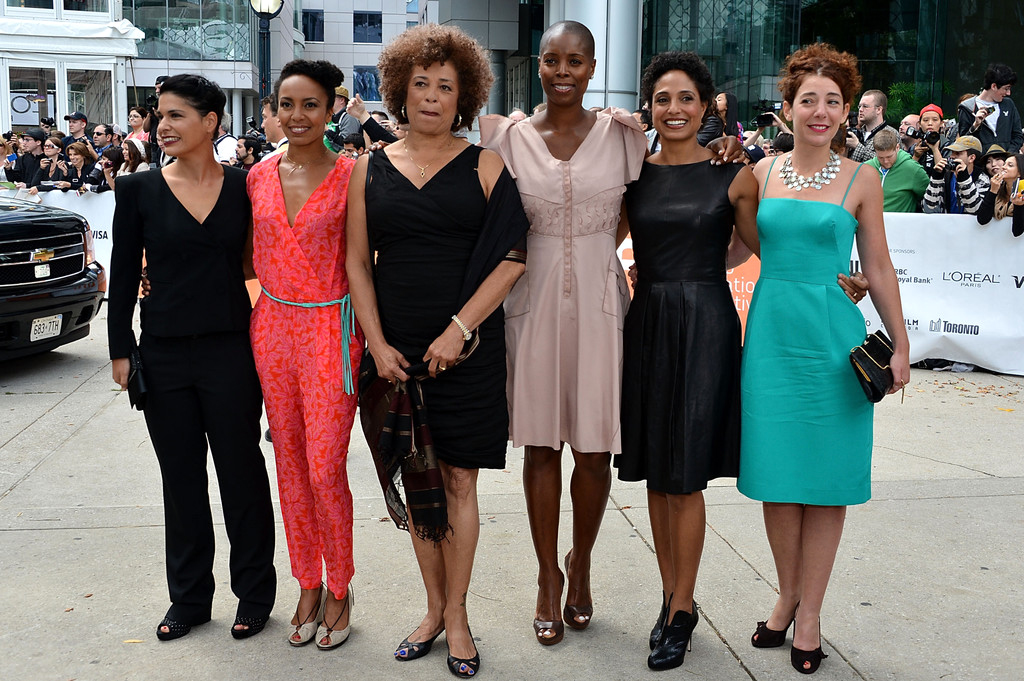
Free-Angela-Political-Prisoners-Carole Lambert, Eisa Davis, Angela Davis, Sidra Smith, Shola Lynch and Carine-Ruszniewski
Pinkett Smith continued: "I look at Angela Davis now as being a figure that was really in the middle of the building blocks of the America that we have today, and that she was really part of a time where America was shifting its consciousness, and she was a big part of that. And I look at this story as being one of the reasons and parts of the path of how we’ve gotten to have an African-American president, or even for myself or my husband or, you know, my kids to exist in the way that we do."

"Free Angela & All Political Prisoners" Premiere - Arrivals - 2012 Toronto International Film Festival. Director Shola Lynch, producer Will Smith, Angela Davis and actor Jada Pinkett Smith attend the "Free Angela & All Political Prisoners" premiere during the 2012 Toronto International Film Festival at Roy Thomson Hall on September 9, 2012 in Toronto, Canada.
Angela Davis`s research interests are in feminism, African-American studies, critical theory, Marxism, popular music, social consciousness, and the philosophy and history of punishment and prisons. She was twice a candidate for Vice President on the Communist Party USA ticket during the 1980s.
Davis was born in Birmingham, Alabama on January 26, 1944. Her father, Frank Davis, was a graduate of St. Augustine's College, a historically black college in Raleigh, North Carolina, and was briefly a high school history teacher. Her father later owned and operated a service station in the black section of Birmingham. Her mother, Sallye Davis, a graduate of Miles College in Birmingham, was an elementary school teacher.
The family lived in the "Dynamite Hill" neighborhood, which was marked by racial conflict. Davis was occasionally able to spend time on her uncle's farm and with friends in New York City. Her brother, Ben Davis, played defensive back for the Cleveland Browns and Detroit Lions in the late 1960s and early 1970s. Davis also has another brother, Reginald Davis, and sister, Fania Davis Jordan.

Davis was awarded a scholarship to Brandeis University in Waltham, Massachusetts, where she was one of three black students in her freshman class. She initially felt alienated by the isolation of the campus (at that time she was interested in Albert Camus and Jean-Paul Sartre), but she soon made friends with foreign students. She encountered the Frankfurt School philosopher Herbert Marcuse at a rally during the Cuban Missile Crisis and then became his student. In a television interview, she said "Herbert Marcuse taught me that it was possible to be an academic, an activist, a scholar, and a revolutionary." She worked part-time to earn enough money to travel to France and Switzerland before she went on to attend the eighth World Festival of Youth and Students in Helsinki, Finland. She returned home in 1963 to a Federal Bureau of Investigation interview about her attendance at the Communist-sponsored festival.
During her second year at Brandeis, she decided to major in French and continued her intensive study of Sartre. Davis was accepted by the Hamilton College Junior Year in France Program. Classes were initially at Biarritz and later at the Sorbonne. In Paris, she and other students lived with a French family. It was at Biarritz that she received news of the 1963 Birmingham church bombing, committed by the members of the Ku Klux Klan, an occasion that deeply affected her, because, she wrote, she was personally acquainted with the young victims.

Nearing completion of her degree in French, Davis realized her major interest was in philosophy instead. She became particularly interested in the ideas of Herbert Marcuse and on her return to Brandeis she sat in on his course. Marcuse, she wrote, turned out to be approachable and helpful. Davis began making plans to attend the University of Frankfurt for graduate work in philosophy. In 1965 she graduated magna cum laude, a member of Phi Beta Kappa.

Angela Davis, center, speaks at a conference in Hamburg, West Germany, in 1981.
In Germany, with a stipend of $100 a month, she first lived with a German family. Later, she moved with a group of students into a loft in an old factory. After visiting East Berlin during the annual May Day celebration, she felt that the East German government was dealing better with the residual effects of fascism than were the West Germans. Many of her roommates were active in the radical Socialist German Student Union (SDS), and Davis participated in SDS actions, but events unfolding in the United States, including the formation of the Black Panther Party and the transformation of SNCC, encouraged her to return to the U.S. Marcuse, in the meantime, had moved to the University of California, San Diego, and Davis followed him there after her two years in Frankfurt.
Angela Davis
Returning to the United States, Davis stopped in London to attend a conference on "The Dialectics of Liberation." The black contingent at the conference included the American Stokely Carmichael and the British Michael X. Although moved by Carmichael's fiery rhetoric, she was disappointed by her colleagues' black nationalist sentiments and their rejection of communism as a "white man's thing." She held the view that any nationalism was a barrier to grappling with the underlying issue, capitalist domination of working people of all races.
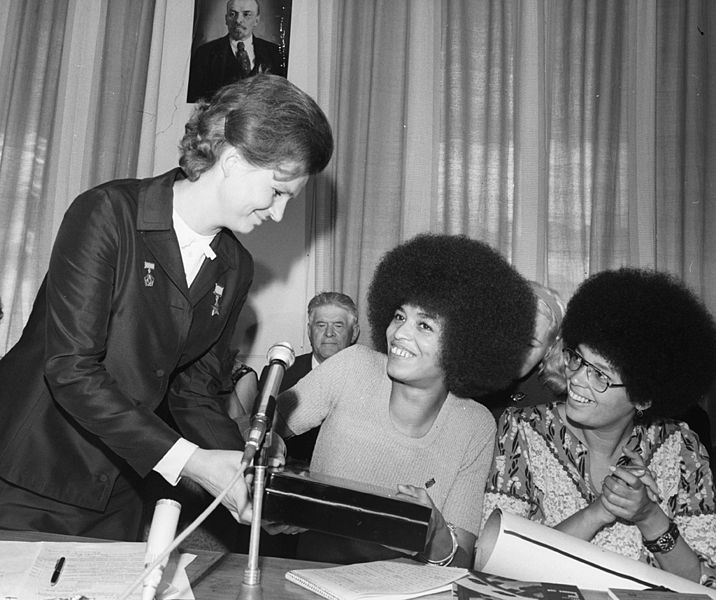
Chairwoman of the Soviet Women's Committee Valentina Tereshkova handing a memento to member of the Central Committee of the Communist Party of the United States Angela Davis. Date 29 August 1972
Davis earned her master's degree from the San Diego campus and her doctorate in philosophy from Humboldt University in East Berlin.
Davis was an acting assistant professor in the philosophy department at the University of California, Los Angeles (UCLA), beginning in 1969. Although both Princeton and Swarthmore had expressed interest in having her join their respective philosophy departments, she opted for UCLA because of its urban location. At that time, she also was known as a radical feminist and activist, a member of the Communist Party USA and an associate of the Black Panther Party.

Angela Davis (center, no glasses) enters Royce Hall at UCLA for her first philosophy lecture in October 1969
The Board of Regents of the University of California, urged by then-California Governor Ronald Reagan, fired her from her $10,000 a year post in 1969 because of her membership in the Communist Party. The Board of Regents was censured by the American Association of University Professors for their failure to reappoint Davis after her teaching contract expired. On October 20, when Judge Jerry Pacht ruled the Regents could not fire Davis because of her affiliations with the Communist Party, she resumed her post.

The Regents, unhappy with the decision, continued to search for ways to release Davis from her position at UCLA. They finally accomplished this on June 20, 1970, when they fired Davis for the “inflammatory language” she had used on four different speeches. “We deem particularly offensive,” the report said, “such utterances as her statement that the regents ‘killed, brutalized (and) murdered' the People's Park demonstrators, and her repeated characterizations of the police as ‘pigs.'

Angela Davis and Erich Honecker in GDR, 1972
On August 7, 1970, Jonathan Jackson, a heavily armed, 17-year-old African-American high-school student, gained control over a courtroom in Marin County, California. Once in the courtroom, Jackson armed the black defendants and took Judge Harold Haley, the prosecutor, and three female jurors as hostages. As Jackson transported the hostages and two black convicts away from the courtroom, the police began shooting at the vehicle. The judge and the three black men were killed in the melee; one of the jurors and the prosecutor were injured.
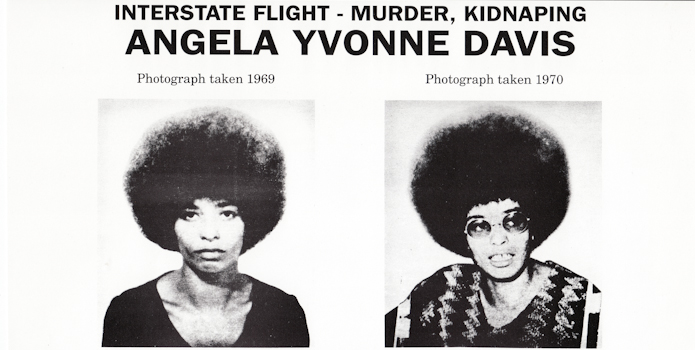
Davis had purchased the firearms used in the attack, including the shotgun used to kill Haley, which had been bought two days prior and the barrel sawed off. Since California considers “all persons concerned in the commission of a crime, whether they directly commit the act constituting the offense... principals in any crime so committed,” San Marin County Superior Judge Peter Allen Smith charged Davis with “aggravated kidnapping and first degree murder in the death of Judge Harold Haley” and issued a warrant for her arrest. Hours after the judge issued the warrant on August 14, 1970 a massive attempt to arrest Angela Davis began. On August 18, 1970, four days after the initial warrant was issued, the FBI director J. Edgar Hoover made Angela Davis the third woman and the 309th person to appear on the FBI's Ten Most Wanted Fugitive List.
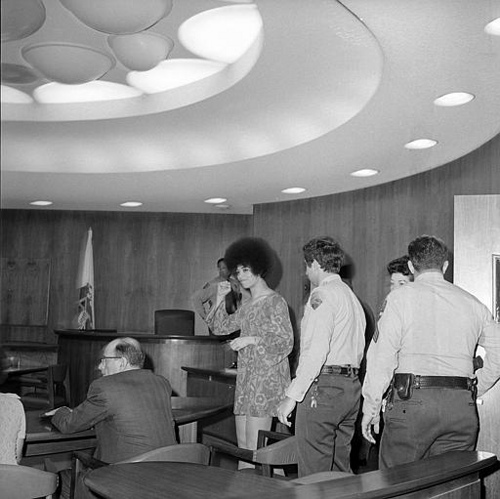
On January 5, 1971, after several months in jail, the prosecution advanced its case based on love letters found in Jackson’s cell after he was killed during another escape attempt (in that incident, Jackson bound three security guards and slit their throats). Davis had kept constant company with Jonathan Jackson in the days leading up to the attempted kidnappings.

African American activist and Communist intellectual Angela Davis enters a San Rafael courtroom for a pre-trial hearing. She was later tried and acquitted of the charges of kidnapping and murder for her part in an attempted courtroom escape. Circa 15 June 1971
Davis appeared at the Marin County Superior Court , acting as her own attorney, spoke for 80 minutes, giving her version of the events. She declared her innocence before the court and nation: "I now declare publicly before the court, before the people of this country that I am innocent of all charges which have been leveled against me by the state of California." She claimed her interest in George Jackson was based on an effort to “free all oppressed men and women and the Soledad brothers,” that she spent considerable time with Jonathan Jackson because she was fearful of being attacked by “extremists” after she lost her job at UCLA, and that she purchased guns because, growing up, her father taught her to be fearful of racial violence. She claimed Jonathan stole the guns from her, and that her love for George happened after her own incarceration, “because like him, I was a political prisoner.” After that speech, Davis never testified again. Because she acted as her own attorney, her testimony was never subjected to cross-examination.
Davis was subsequently implicated by more than 20 witnesses in the plot to free George Jackson. In turn, Davis’s defense team presented several alibi witnesses, almost all of whom were fellow Communist friends. They testified Davis was in LA at the time of the kidnapping and murder of Haley. Prior to the trial, the defense team had filed a steady stream of motions, all based on the idea that white prejudice would tilt the scales of justice unfairly. They also used psychiatrists, psychologists and a handwriting expert to pick a jury based on how they would interact as a group.

Angela Davis raises her fist to give her power salute as she sits in the courtroom at Marin Civic Center in San Rafael, Ca., on March 16, 1971. Davis, who is accused of supplying some of the weapons used in a shoot-out during an attempted escape of prisoners at the Marin County Courthouse, is waiting for her court hearing to start after it was postponed because of bomb threats.
John Abt, general counsel of the Communist Party USA, was one of the first attorneys to represent Davis for her alleged involvement in the shootings. While being held in the Women's Detention Center there, she was initially segregated from the general population, but with the help of her legal team soon obtained a federal court order to get out of the segregated area.
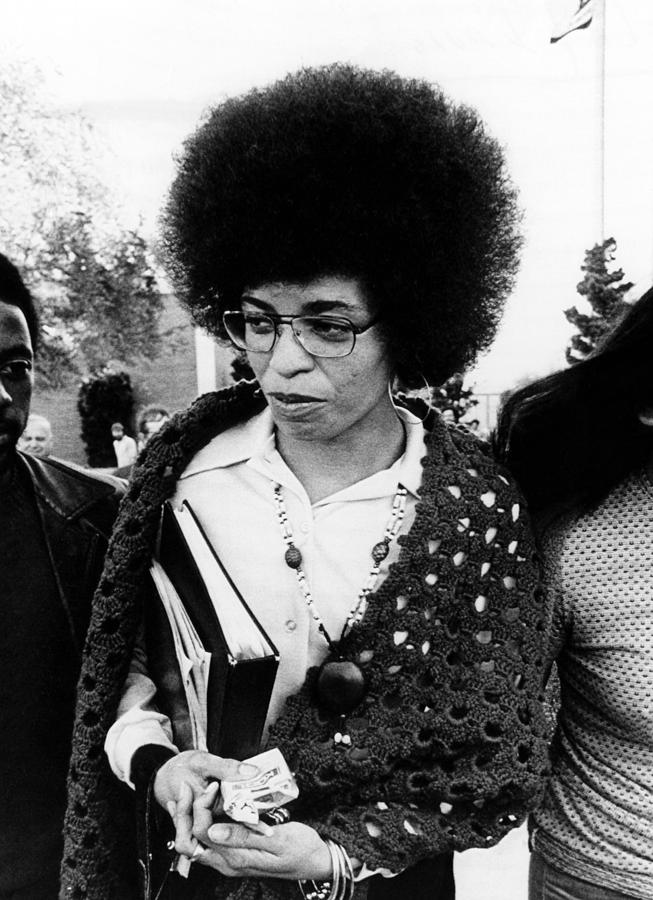
Angela Davis left the Cout House after the first day of her trial. She was charged with kidnapping, conspiracy and murder. Circa 1972
The defense team did their work well. Across the nation, thousands of people who agreed with her declaration began organizing a liberation movement. In New York City, black writers formed a committee called the Black People in Defense of Angela Davis. By February 1971 more than 200 local committees in the United States, and 67 in foreign countries worked to liberate Angela Davis from prison. Thanks, in part, to this support, in 1972 the state released her from county jail. On February 23, 1972, Rodger McAfee, a dairy farmer from Caruthers, California, paid her $100,000 bail with the help of Steve Sparacino, a wealthy business owner. Portions of her legal defense expenses were paid for by the Presbyterian Church (UPCUSA).
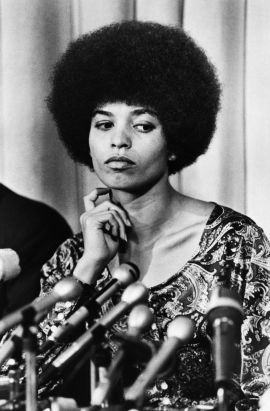
The first vote by the all-white jury jury, which was packed with Davis sympathizers like radical activist Mary Timothy, was 10-2 for acquittal. The fact that she owned the guns used in the crime was judged not sufficient to establish her responsibility for the plot. She was represented by Leo Branton Jr., who hired psychologists to help the defense determine who in the jury pool might favor their arguments, an uncommon practice at the time, and also hired experts to undermine the reliability of eyewitness accounts.
After they reached a unanimous verdict and Davis was acquitted, the majority of the jury attended a music festival victory celebration with her. Juror Ralph Delange, exiting the court after the verdict, gave a revolutionary clenched fist salute to a cheering crowd. “I did it because I wanted to show I felt an identity with the oppressed people in the crowd,” he explained to reporters. “All through the trial, they thought we were just a white, middle class jury. I wanted to express my sympathy with their struggle.”
Her experience as a prisoner in the US played a key role in persuading her to fight against the prison-industrial complex in the United States.
John Lennon and Yoko Ono recorded their song "Angela" on their 1972 album Some Time in New York City in support. The jazz musician Todd Cochran, also known as Bayete, recorded his song "Free Angela (Thoughts...and all I've got to say)" that same year. Also in 1972, Tribe Records co-founder Phil Ranelin released a song dedicated to Davis intitled "Angela's Dilemma" on Message From The Tribe, a spiritual jazz collectable. The Rolling Stones song "Sweet Black Angel", recorded in 1970 and released in 1972 on their album Exile on Main Street, is dedicated to Davis and is one of the band's few overtly political releases.
After her release, a triumphant Davis moved on, continuing to promote her Communist agenda. She visited Cuba. In doing so she followed the precedents set by her fellow activists Robert F. Williams, Huey Newton, Stokely Carmichael, and Assata Shakur. Her reception by Afro-Cubans at a mass rally was so enthusiastic that she was reportedly barely able to speak. During her stay in Cuba, Davis witnessed what she perceived to be a racism-free country. This led her to believe that “only under socialism could the fight against racism be successfully executed.” When she returned to the United States her socialist leanings increasingly influenced her understanding of race struggles within the U.S.

Angela Davis. Circa 1960
In 1979, her efforts earned her the International Lenin Peace Prize awarded by the police state of East Germany. The Soviet government-appointed panel that awarded her the prize said that her work had “strengthened peace among peoples.”
Davis has also faced provocative and unfair criticism from some Communists. In a New York City speech on July 9, 1975, Russian dissident and Nobel Laureate Aleksandr Solzhenitsyn told an AFL-CIO meeting that Davis was derelict in having failed to support prisoners in various socialist countries around the world, given her stark opposition to the U.S. prison system. He claimed a group of Czech prisoners had appealed to Davis for support, which he said she refused to offer.

Solzhenitsyn stated, "Little children in school were told to sign petitions in defense of Angela Davis. Although she didn't have too difficult a time in this country's jails, she came to recuperate in Soviet resorts. Some Soviet dissidents–but more important, a group of Czech dissidents–addressed an appeal to her: 'Comrade Davis, you were in prison. You know how unpleasant it is to sit in prison, especially when you consider yourself innocent. You have such great authority now. Could you help our Czech prisoners? Could you stand up for those people in Czechoslovakia who are being persecuted by the state?' Angela Davis answered: 'They deserve what they get. Let them remain in prison.' That is the face of Communism. That is the heart of Communism for you." There are no independent reports to confirm the accuracy of this quotation that Solzhenitsyn attributed to her. In a speech at East Stroudsburg University in Pennsylvania, Davis denied Solzhenitsyn's accusations.

Angela Davis as honorary guest of the World Festival of Youth and Students in 1973; the banner reads "The youth of the [East] German Democratic Republic greet the youth of the world"
In 1980 and 1984, Davis ran for Vice-President along with the veteran party leader of the Communist Party, Gus Hall. However, given that the Communist Party lacked support within the US, Davis urged radicals to amass support for the Democratic Party. Revolutionaries must be realists, said Davis in a telephone interview from San Francisco where she was campaigning. During both of the campaigns she was Professor of Ethnic Studies at the San Francisco State University. In 1979 she was awarded the Lenin Peace Prize from the Soviet Union for her civil rights activism. She visited Moscow in July of that year to accept the prize.
Davis has continued a career of activism, and has written several books. A principal focus of her current activism is the state of prisons within the United States. She considers herself an abolitionist, not a "prison reformer," and has referred to the United States prison system as the "Prison-industrial complex". Davis suggested focusing social efforts on education and building "engaged communities" to solve various social problems now handled through state punishment.

David Poindexter accompanies Angela Davis during a Chicago confab. 1973
Davis was one of the founders of Critical Resistance, a national grassroots organization dedicated to building a movement to abolish the prison industrial complex. In recent work, she argues that the prison system in the United States more closely resembles a new form of slavery than a criminal justice system. According to Davis, between the late 19th century and the mid-20th century the number of prisons in the United States sharply increased while crime rates continued to rise. During this time, the African-American population also became disproportionally represented in prisons. "What is effective or just about this "justice" system?" she urged people to question.
Davis has lectured at San Francisco State University, Stanford University, Bryn Mawr College, Brown University, Syracuse University, and other schools. She states that in her teaching, which is mostly at the graduate level, she concentrates more on posing questions that encourage development of critical thinking than on imparting knowledge. In 1997, she declared herself to be a lesbian in Out magazine.
As early as 1969 Davis began publicly speaking, voicing her opposition to the Vietnam War, racism, sexism, and the prison industrial complex, and her support of gay rights and other social justice movements. In 1969 she blamed imperialism for the troubles suffered by oppressed populations. “We are facing a common enemy and that enemy is Yankee Imperialism, which is killing us both here and abroad. Now I think anyone who would try to separate those struggles, anyone who would say that in order to consolidate an anti-war movement, we have to leave all of these other outlying issues out of the picture, is playing right into the hands of the enemy”, she declared. In 2001 she publicly spoke against the war on terror, the prison industrial complex, and the broken immigration system and told people that if they wanted to solve social justice issues they had to “hone their critical skills, develop them and implement them." Later, after the aftermath of Hurricane Katrina, she declared, the “horrendous situation in New Orleans,” is due to the structures of racism, capitalism, and imperialism with which our leaders run this country.
Davis opposed the 1995 Million Man March, arguing that the exclusion of women from this event necessarily promoted male chauvinism and that the organizers, including Louis Farrakhan, preferred women to take subordinate roles in society. Together with Kimberlé Crenshaw and others, she formed the African American Agenda 2000, an alliance of Black feminists.
Davis is no longer a member of the Communist Party, leaving it to help found the Committees of Correspondence for Democracy and Socialism, which broke from the Communist Party USA because of the latter's support of the Soviet coup attempt of 1991. She remains on the Advisory Board of the Committees.
Davis has continued to oppose the death penalty. In 2003, she lectured at Agnes Scott College, a liberal arts women's college in Atlanta, on prison reform, minority issues, and the ills of the criminal justice system.
At the University of California, Santa Cruz (UC Santa Cruz), she participated in a 2004 panel concerning Kevin Cooper. She also spoke in defense of Stanley "Tookie" Williams on another panel in 2005, and 2009.
As of February 2007, Davis was teaching in the History of Consciousness Department at the University of California, Santa Cruz.
Angela Davis
In addition to being the commencement speaker at Grinnell College in 2007, in October of that year, Davis was the keynote speaker at the fifth annual Practical Activism Conference at UC Santa Cruz. On February 8, 2008, Davis spoke on the campus of Howard University at the invitation of Phi Beta Sigma Fraternity. On February 24, 2008, she was featured as the closing keynote speaker for the 2008 Midwest Bisexual Lesbian Gay Transgender Ally College Conference. On April 14, 2008, she spoke at the College of Charleston as a guest of the Women's and Gender Studies Program. On January 23, 2009, she was the keynote speaker at the Martin Luther King Commemorative Celebration on the campus of Louisiana State University.
On April 16, 2009, she was the keynote speaker at the University of Virginia Carter G. Woodson Institute for African American and African Studies symposium on The Problem of Punishment: Race, Inequity, and Justice. On January 20, 2010, Davis was the keynote speaker in San Antonio, Texas, at Trinity University's MLK Day Celebration held in Laurie Auditorium. On January 21, 2011, Davis was the keynote speaker in Salem, Oregon at the Willamette University MLK Week Celebration held in Smith Auditorium where she declared that her biggest goal for the coming years is to shut down prisons. During her remarks, she also noted that while she supports some of President Barack Obama's positions, she feels he is too conservative[citation needed]. On January 27, 2011, Davis was the Martin Luther King, Jr. Celebration speaker at Georgia Southern University's Performing Arts Center (PAC) in Statesboro, Georgia. On June 10, 2011, Davis delivered the Graduation Address at the Evergreen State College, Olympia, Washington. On May 12, 2012, Davis delivered a Commencement Address at Pitzer College, in Claremont.
On October 31, 2011, Davis spoke at the Philadelphia and Washington Square Occupy Wall Street assemblies where, due to restrictions on electronic amplification, her words were human microphoned.
In 2012 Davis was awarded the 2011 Blue Planet Award, an award given for contributions to humanity and the planet.

Angela Davis speaking at Myer Horowitz Theatre of the University of Alberta. 28 March 2006
On March 9, 2013, Davis Spoke at Gustavus Adolphus College in Saint Peter, MN about the realities of the mass incarceration and the prison-industrial complex in the United States. She was the keynote speaker at the 18th Annual Building Bridges Conference, a conference dedicated to social justice matters.
On October 27, 2013 Davis appeared at the Southbank Centre, London, as the culminating speaker in a week-end of talks and concerts devoted to the 60s. It was part of "The Rest is Noise", a year-long series on 20th century cultural and political history.

Davis was a professor in the History of Consciousness and the Feminist Studies Departments at the University of California, Santa Cruz from 1991 to 2008 and is now Distinguished Professor Emerita.
Davis was a Distinguished Visiting Professor at Syracuse University in Spring 1992 and October 2010. She was hosted by the Women's and Gender Studies Department and the Department of African American studies.



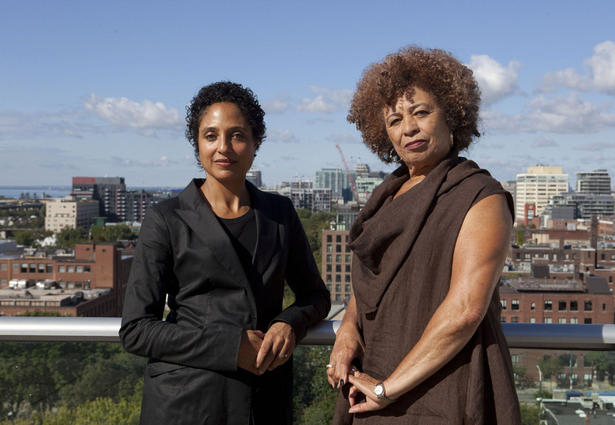
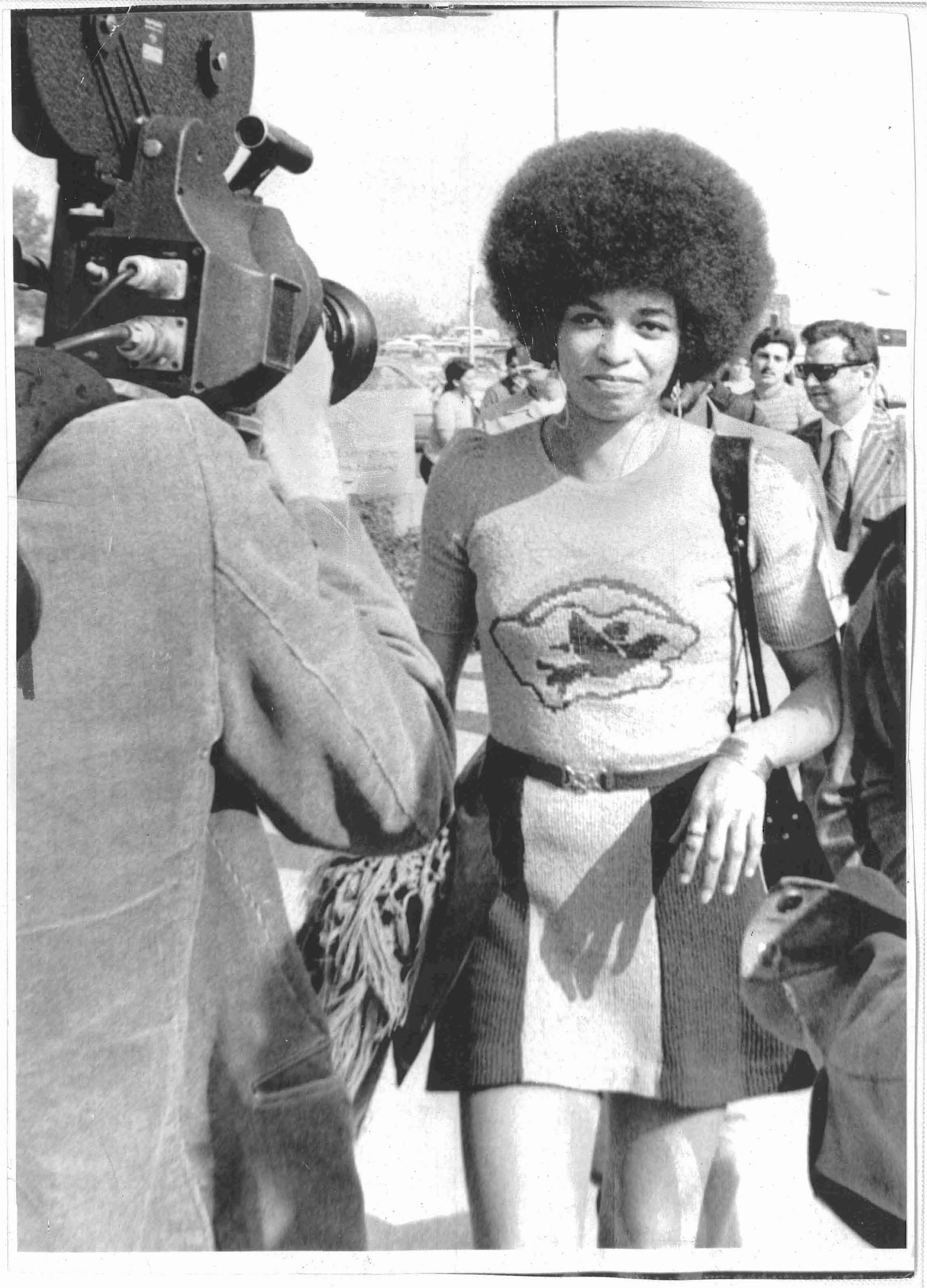

![[Photo of Angela Davis with Jim Grant's parents]](http://www.hartford-hwp.com/archives/45a/048a.png)
A photograph of Angela Davis with Jim Grant's parents at a fundraiser in Hartford, CT, to raise the money needed for Jim Grant's defense. Grant had been falsely accused of arson (torching a barn)

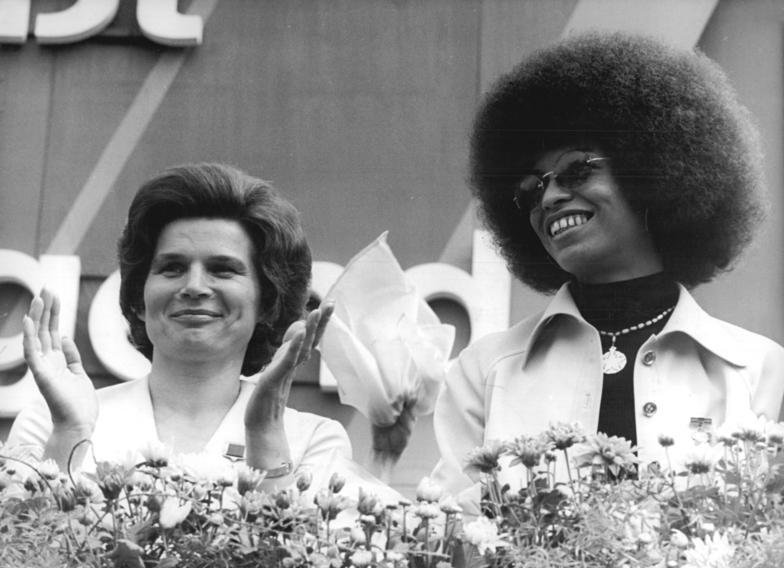

Author and scholar Angela Davis discusses community issues with Haywood Burns and Robert Pickett.


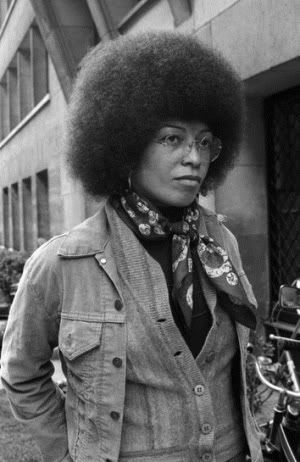


Angela Davis and Lil Mama
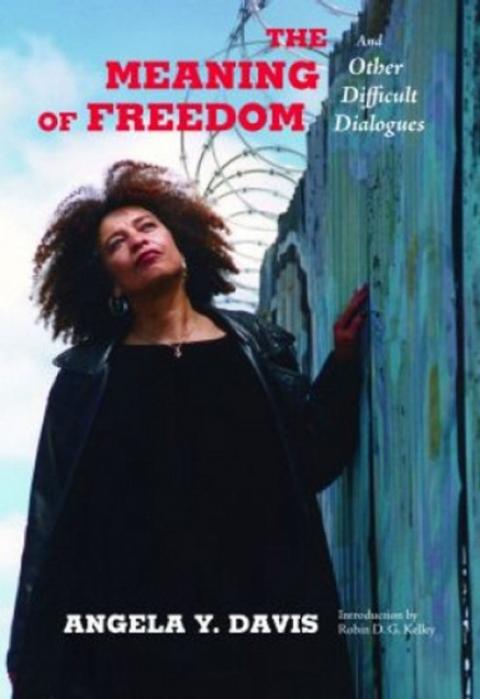

Willow Smith and Angela Davis attend the "Free Angela & All Politica
.jpg)


Scholar-author-and-activist-Angela-Davis-and-Chairman-and-CEO-of-BET-Holdings-Inc.-Debra-Lee



Angela Davis (Original footage by Tom Goetz), 1967-1975.
Archival Pigment Print.
This print is part of The Black Power Mixtape 1967-1975 collection.

Tatyana-Ali-and-Angela-Davis


Taraji-P.-Henson-Angela-Davis-and-Erykah-Badu-











Angela Davis and Malika Saada Saar - Black Girls Rock! 2011

Celebrating our honorands: Angela Davis


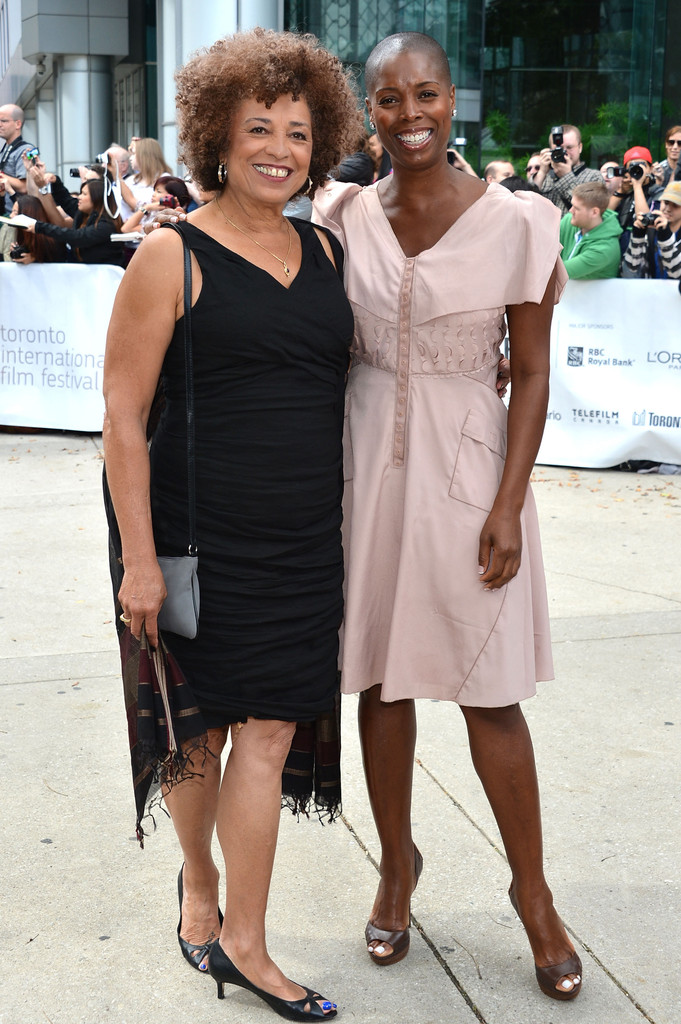
Free Angela Political Prisoners – Angela Davis and Sidra Smith
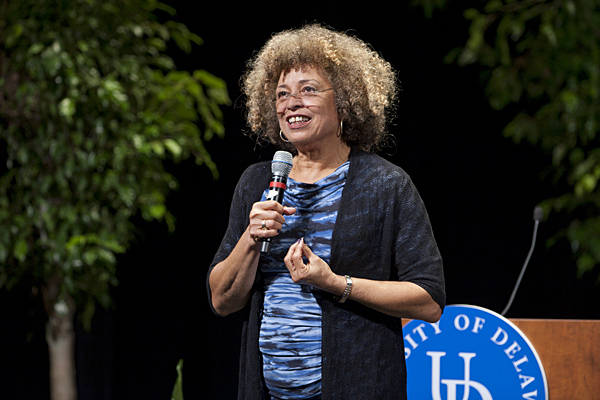

Angela Davis during a speech in Northern California. Spring 1981
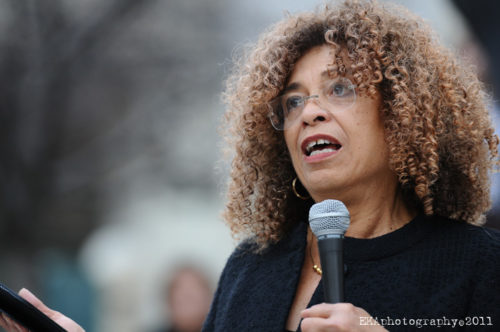


Angela Davis reflecting during a speech in Northern California.
Spring, 1981.

Angela Davis and Jean Genet
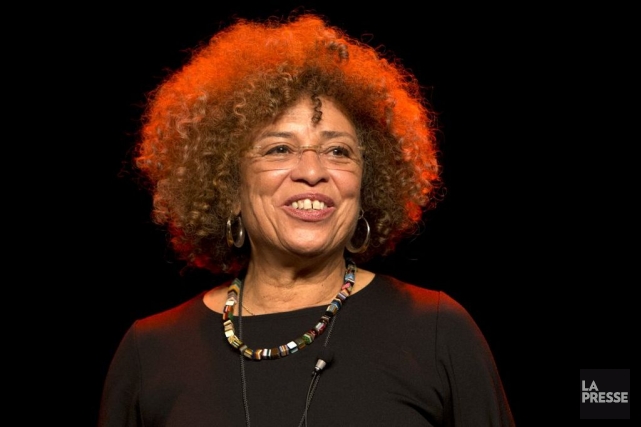
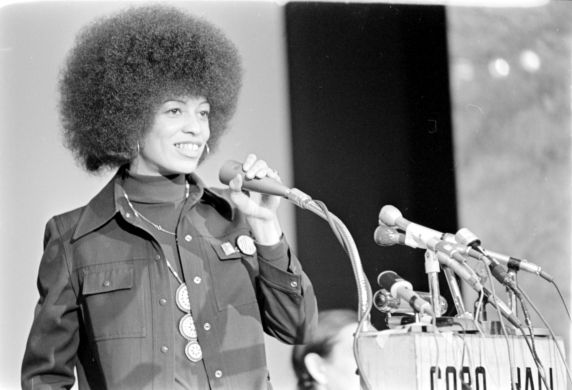

Watch Angela Davis and Tim Wise, two of this country's leading racial and social justice scholar-activists, engage in a conversation on the state of contemporary global politics

Angela Davis and Margaret A. Burnham


Shola Lynch, Jada Pinkett Smith, Angela Davis, Will Smith, Fania Davis Jordan, Sidra Smith
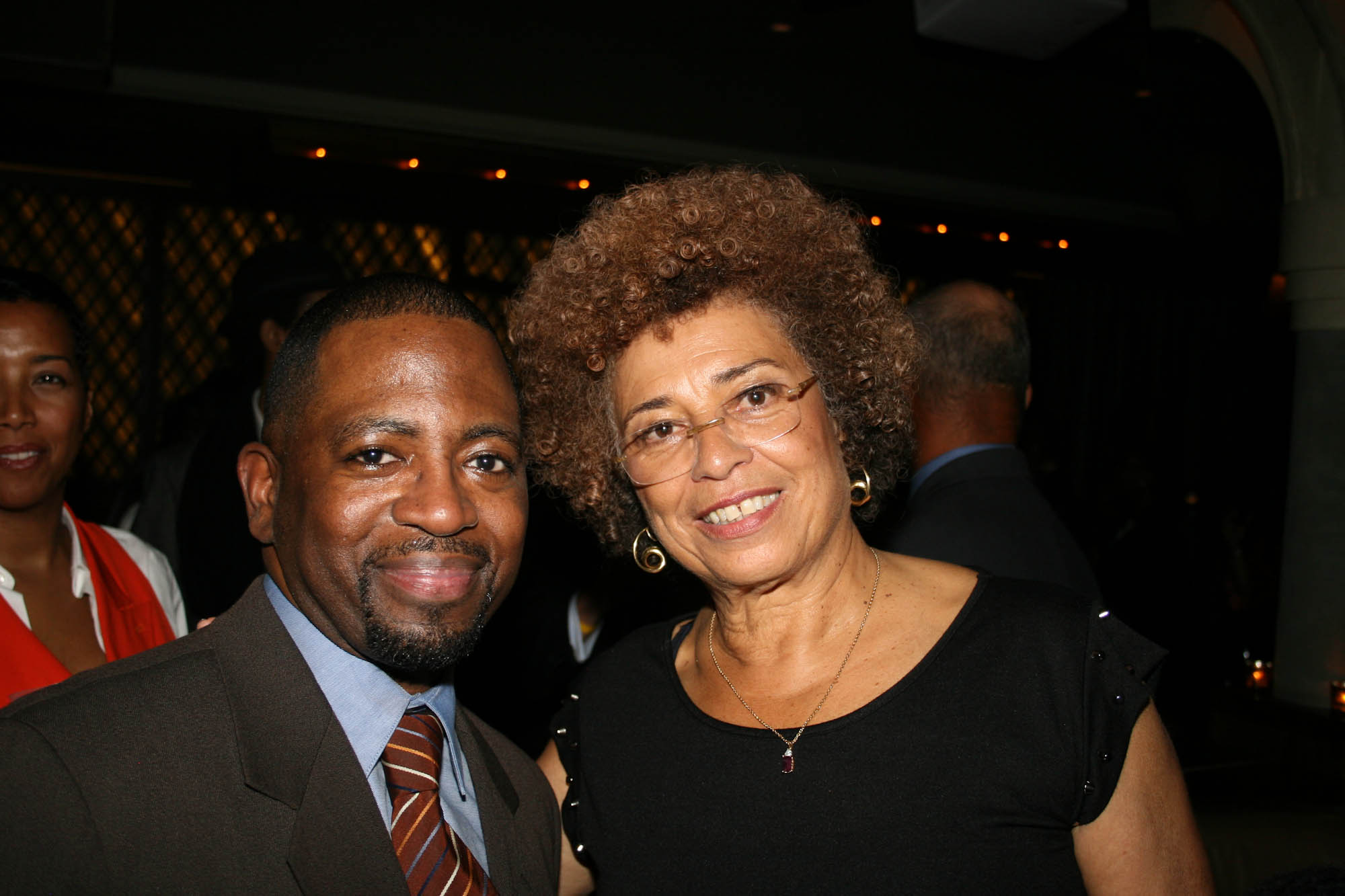
Blackfilm.com Editor Wilson Morales and Angela Davis


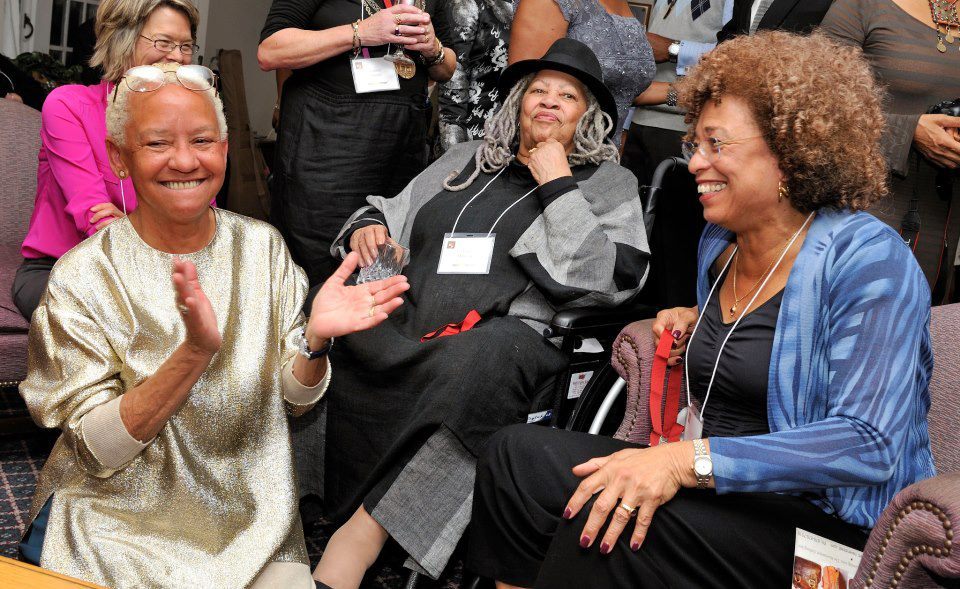
Nikki Giovanni | Toni Morrison | Angela Davis

.jpg)

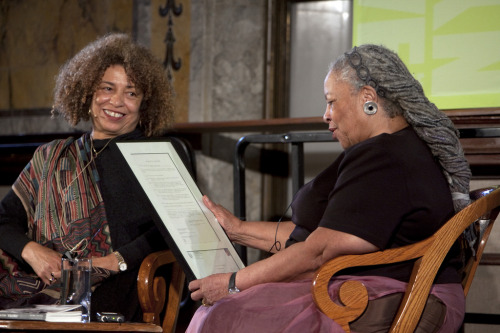
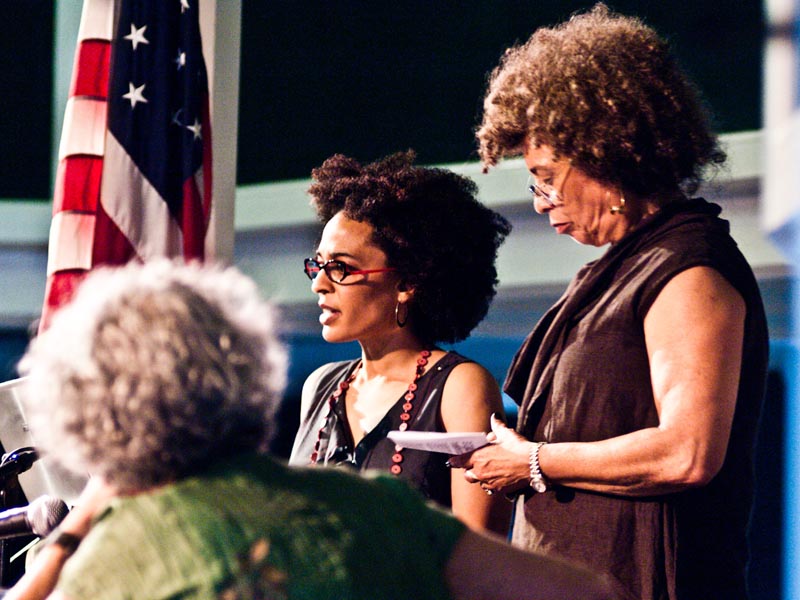
Standing Up for Civil Rights in Palestine
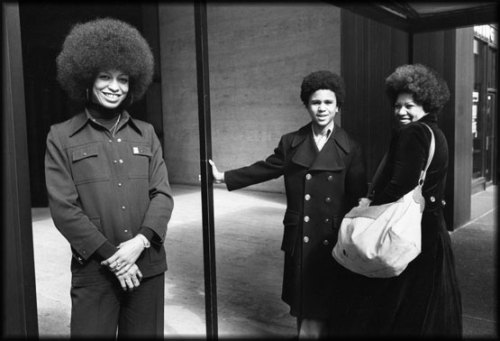
Angela Davis & Toni Morrison

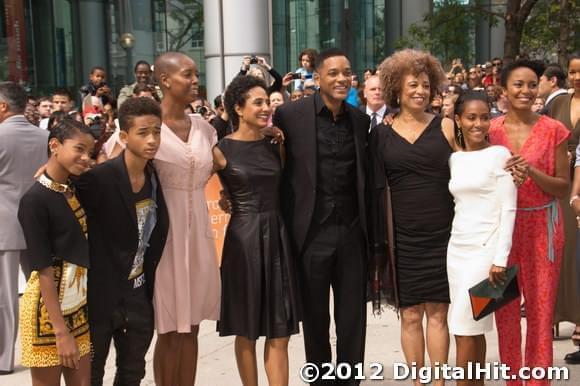
Picture of Willow Smith, Jaden Smith, Sidra Smith, Shola Lynch, Will Smith, Angela Davis, Jada Pinkett Smith and Eisa Davis | Free Angela & All Political Prisoners premiere | 37th Toronto International Film Festival TIFF2012
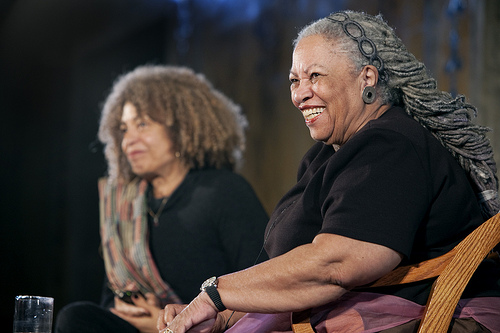



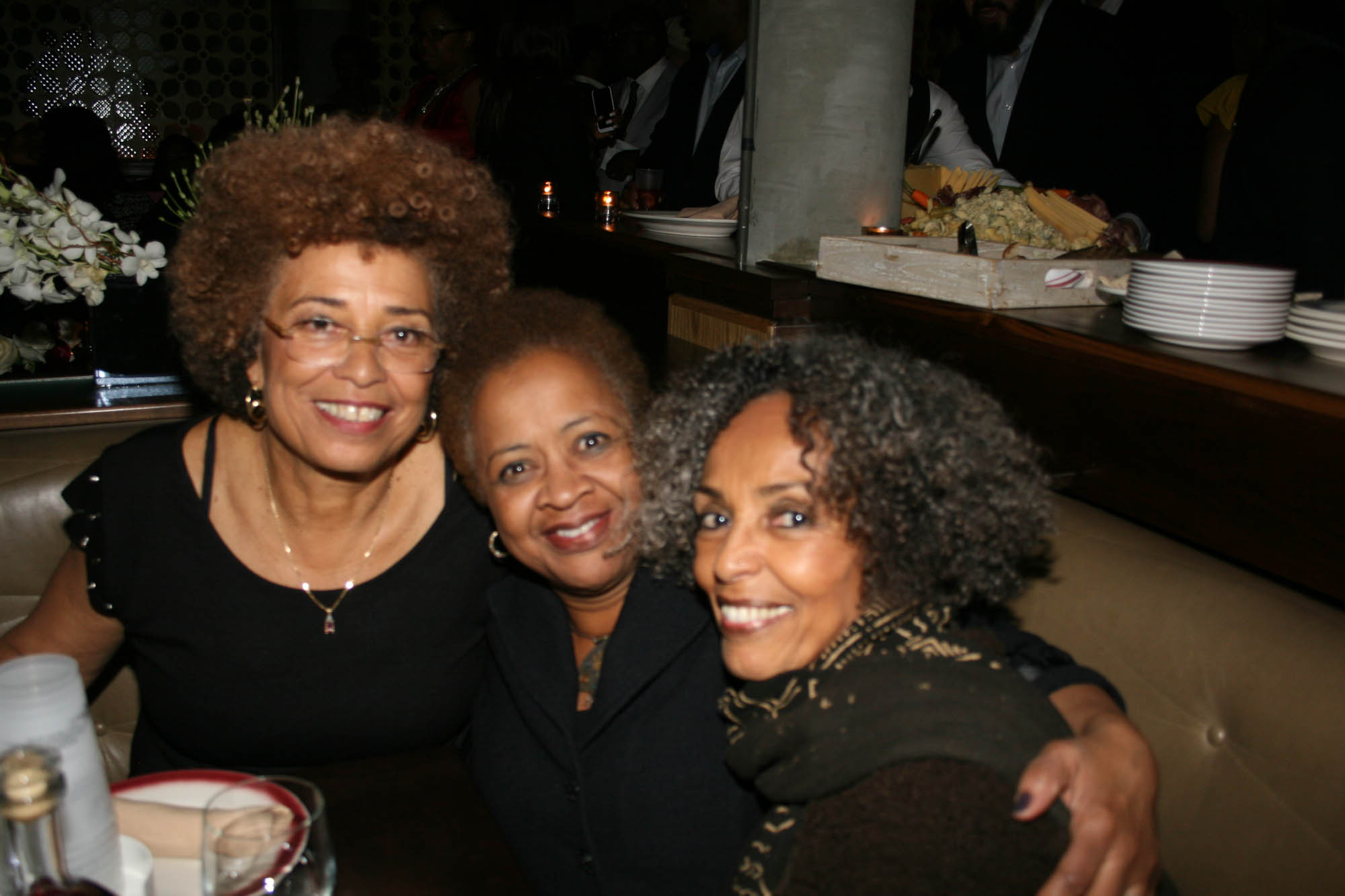
Angela Davis, Margaret A. Burnham, and Fania Davis Jordan
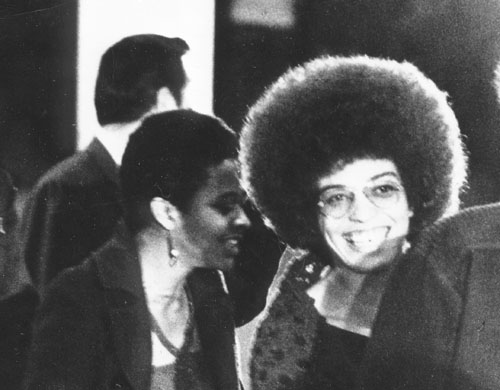
Margaret Burnham and her client Angela Davis, released on bail


TAG Angela Davis Harry Belafonte

Angela Davis talks to newsmen following her acquittal in San Jose, June 4, .



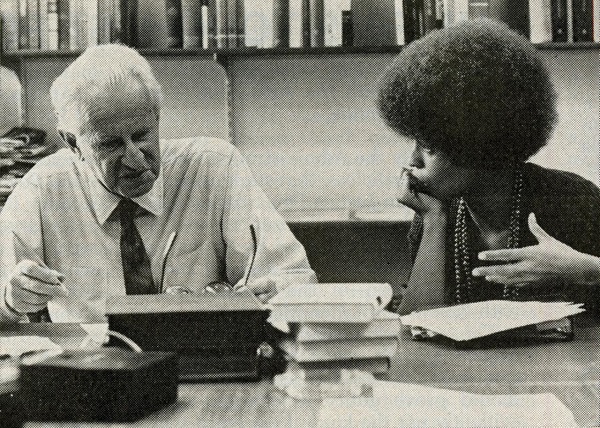
marcuse and angela davis









0 comments:
Post a Comment